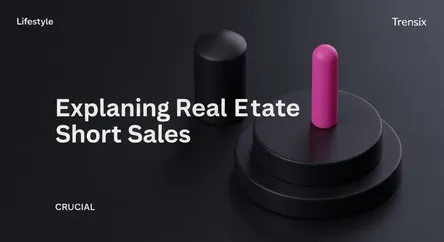Lifestyle
Explaining Real Estate Short Sales

Discover what a short sale is in real estate. Learn how this foreclosure alternative works for both homeowners and potential buyers.
What is it?
A short sale is a real estate transaction where a homeowner sells their property for less than the amount owed on their mortgage. For the sale to proceed, the mortgage lender must agree to accept a lower payoff amount. This typically happens when a homeowner is facing significant financial hardship and is unable to keep up with mortgage payments. It is considered an alternative to foreclosure, allowing the homeowner to sell the property and the lender to avoid the costly and time-consuming process of repossessing the home.
Why is it trending?
Short sales often become more common during economic downturns or in housing markets where property values have declined significantly. When homeowners find themselves "underwater"—owing more on their mortgage than their home is currently worth—a traditional sale isn't feasible. Economic pressures like job loss or rising interest rates can increase the number of distressed homeowners seeking this option. For investors and patient homebuyers, these market conditions present an opportunity to purchase properties below their potential market value, fueling interest from the buyer side.
How does it affect people?
For sellers, a short sale is a stressful process but is generally less damaging to their credit score than a foreclosure. It provides a way to resolve an unmanageable debt and move on financially. For buyers, short sales can offer a chance to buy a home at a discount, but the process is often notoriously slow and complex, requiring months of waiting for lender approval with no guarantee of success. For lenders, it's a strategic decision to mitigate losses on a non-performing loan, as the costs associated with a short sale are typically lower than a full foreclosure and auction.